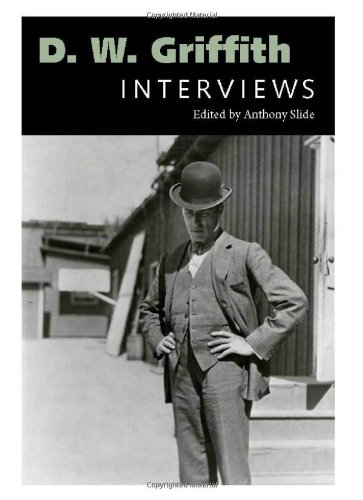

Most ebook files are in PDF format, so you can easily read them using various software such as Foxit Reader or directly on the Google Chrome browser.
Some ebook files are released by publishers in other formats such as .awz, .mobi, .epub, .fb2, etc. You may need to install specific software to read these formats on mobile/PC, such as Calibre.
Please read the tutorial at this link. https://ebooknice.com/page/post?id=faq
We offer FREE conversion to the popular formats you request; however, this may take some time. Therefore, right after payment, please email us, and we will try to provide the service as quickly as possible.
For some exceptional file formats or broken links (if any), please refrain from opening any disputes. Instead, email us first, and we will try to assist within a maximum of 6 hours.
EbookNice Team

Status:
Available0.0
0 reviewsD. W. Griffith (1875-1948) is one of the most influential figures in the history of the motion picture. As director of The Birth of a Nation, he is also one of the most controversial. He raised the cinema to a new level of art, entertainment, and innovation, and at the same time he illustrated, for the first time, its potential to influence an audience and propagandize a cause.
Collected together here are virtually all of the "interviews" given by D. W. Griffith from the first in 1914 to the last in 1948. Some of the interviews concentrate on specific films, including The Birth of a Nation, Intolerance, and, most substantially, Hearts of the World, while others provide the director with an opportunity to expound on topics of personal interest, including the importance of proper exhibition of his and other's films, and his search for truth and beauty on screen.
The interviews are taken from many sources, including leading newspapers, trade papers, and fan magazines. They are often marked by humor and by a desire to please the interviewer and thus the reader. Griffith may not have been particularly enthusiastic about giving interviews, but he seems always determined to put on a good show.
Ultimately, D. W. Griffith: Interviews provides the reader with a unique insight into the mind and filmmaking techniques of a director whose work and philosophy is as relevant today as it was when he was at the height of his fame in the 1910s and 1920s.